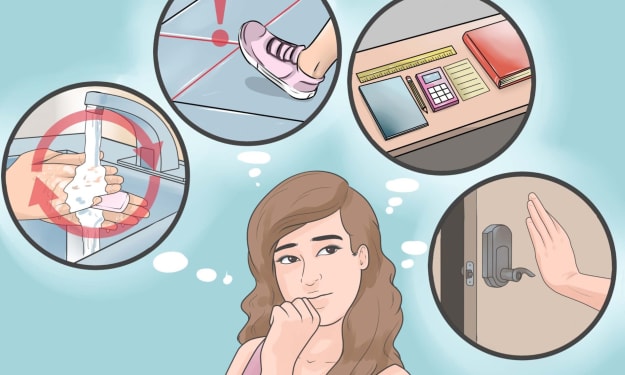How to Deal with Withdrawal Symptoms When Quitting Tobacco
How to Deal with Withdrawal Symptoms When Quitting Tobacco

Tobacco use is a global health issue and is responsible for numerous health problems, including cancer, heart disease, and respiratory disease. Many individuals who use tobacco products may struggle with addiction and experience withdrawal symptoms when trying to quit. Withdrawal symptoms can be challenging to manage, but there are effective strategies that individuals can use to deal with these symptoms and successfully quit tobacco use. Additionally, seeking the help of a psychiatrist in Bangalore can provide individuals with the necessary support and guidance to overcome tobacco addiction.
Withdrawal symptoms from tobacco use can vary from person to person, but common symptoms include irritability, anxiety, depression, cravings, insomnia, and difficulty concentrating. These symptoms can be overwhelming and may cause individuals to relapse or struggle with quitting altogether. However, it is important to remember that withdrawal symptoms are temporary and will gradually subside over time. It is also essential to have a plan in place to manage these symptoms effectively.
One effective strategy for dealing with withdrawal symptoms is to engage in healthy behaviors that can help reduce stress and improve overall well-being. Exercise is an excellent way to reduce stress and improve mood, and it can also help reduce cravings for tobacco. Other healthy behaviors to consider include eating a balanced diet, practicing relaxation techniques such as deep breathing or meditation, and getting enough sleep each night.
Another effective strategy for dealing with withdrawal symptoms is to seek support from friends, family members, or a support group. Quitting tobacco can be challenging, and having a support system in place can help individuals stay motivated and focused on their goals. Support groups, such as Nicotine Anonymous, provide individuals with a safe and supportive environment to share their experiences and receive encouragement from others who are going through similar challenges.
Additionally, seeking the help of a mental health professional, such as a psychiatrist in Bangalore, can be an effective way to manage withdrawal symptoms and quit tobacco use. Psychiatrists are medical doctors who specialize in the diagnosis and treatment of mental health conditions, including addiction. They can provide individuals with a comprehensive evaluation to assess their addiction and develop a personalized treatment plan to help them overcome their addiction.
Psychiatrists can also prescribe medications that can help manage withdrawal symptoms and reduce cravings for tobacco. Nicotine replacement therapy, such as nicotine gum or patches, can be an effective way to manage cravings for tobacco while reducing the severity of withdrawal symptoms. Other medications, such as bupropion or varenicline, can help reduce cravings and withdrawal symptoms and increase the likelihood of successful tobacco cessation.
Moreover, psychiatrists can provide individuals with counseling and support to help them manage the emotional and psychological aspects of tobacco addiction. They can help individuals identify the underlying reasons for their addiction and develop coping strategies to manage triggers and cravings. Additionally, they can provide individuals with strategies to manage stress and anxiety, which can be major triggers for tobacco use.
It is important to note that quitting tobacco use can be a challenging and complex process, and there is no one-size-fits-all approach. Each individual's experience with tobacco addiction and withdrawal symptoms will be unique, and it is important to work with a mental health professional who can provide personalized treatment and support.
In addition to seeking professional help, there are several self-help strategies that individuals can use to manage withdrawal symptoms and successfully quit tobacco use. One of the most effective self-help strategies is to set a quit date and prepare for it in advance. This can involve identifying triggers and developing coping strategies, such as avoiding situations that may trigger tobacco use or using alternative activities to manage stress.
Another self-help strategy is to use positive self-talk and affirmations to stay motivated and focused on the goal of quitting tobacco use. This can involve repeating positive statements to oneself, such as "I am strong and capable of quitting tobacco" or "I am committed to improving my health and well-being."
It is also important to celebrate small victories along the way, such as going a day without using tobacco or successfully managing a craving. Celebrating these small victories can help individuals stay motivated and focused on their goal of quitting tobacco use.
In conclusion, dealing with withdrawal symptoms when quitting tobacco can be challenging, but there are effective strategies that individuals can use to manage these symptoms and successfully quit tobacco use. Engaging in healthy behaviors, seeking support from friends and family members, and seeking the help of a mental health professional, such as a psychiatrist in Bangalore, can all be effective ways to manage withdrawal symptoms and overcome tobacco addiction.
It is essential to remember that quitting tobacco use is a process and may take time, and it is important to be patient and kind to oneself throughout this process. With the right strategies and support in place, individuals can successfully quit tobacco use and improve their overall health and well-being.
About the Creator
Enjoyed the story? Support the Creator.
Subscribe for free to receive all their stories in your feed. You could also pledge your support or give them a one-off tip, letting them know you appreciate their work.





Comments
There are no comments for this story
Be the first to respond and start the conversation.